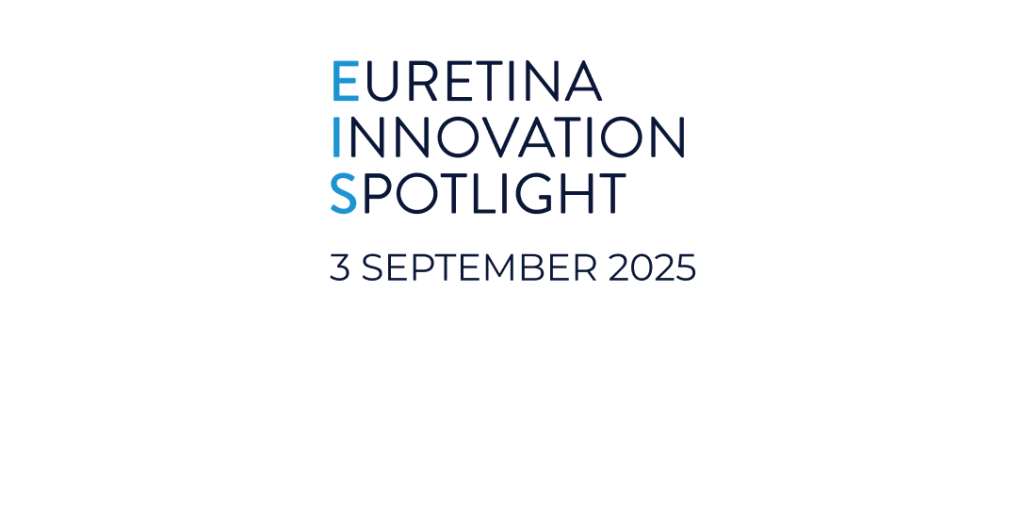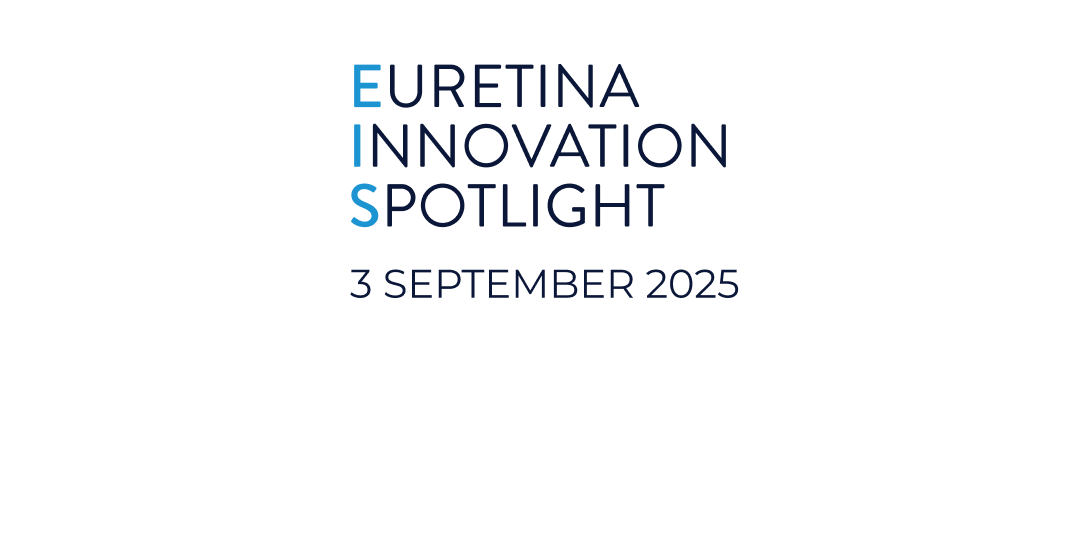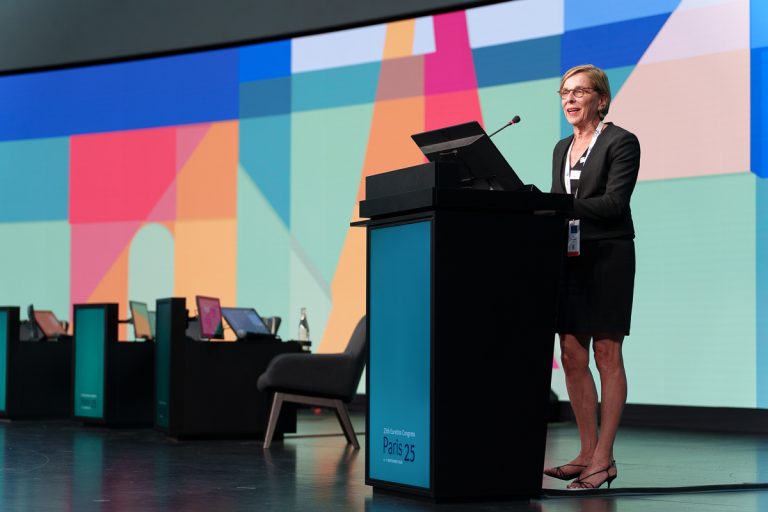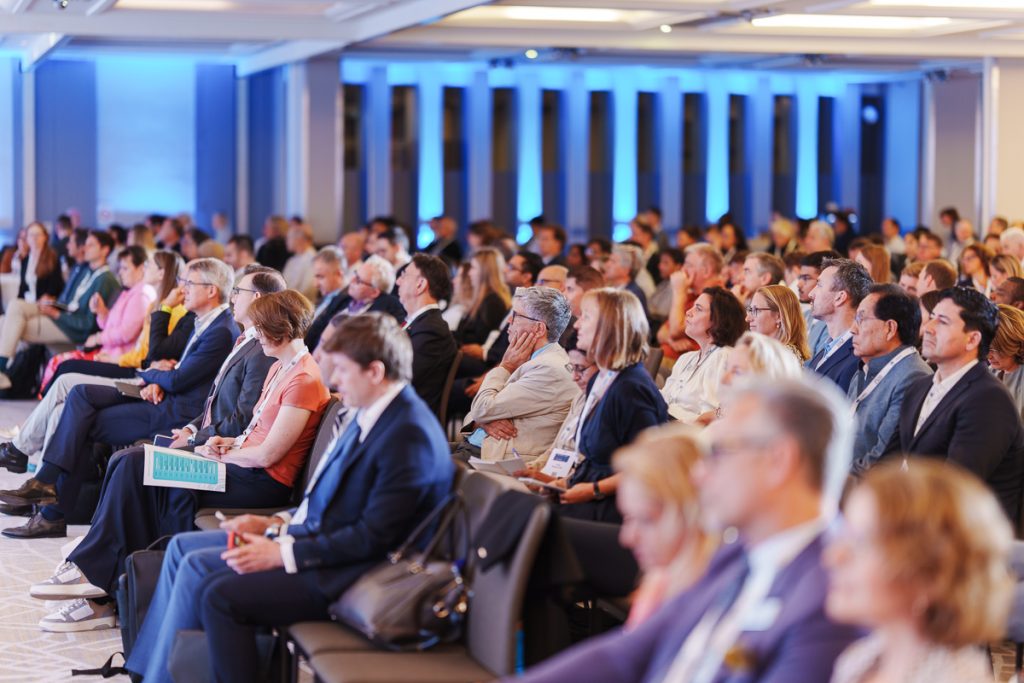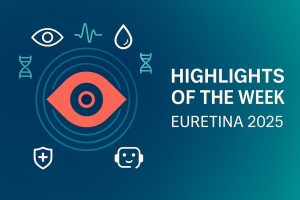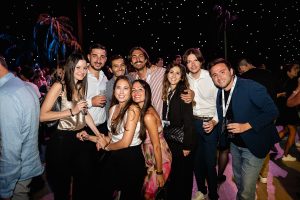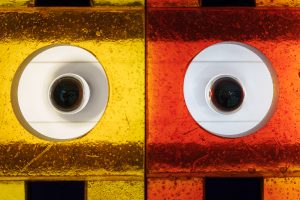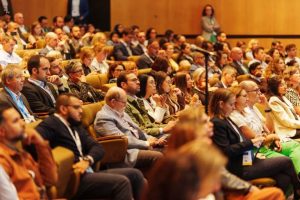Euretina 2026 was officially opened by President Dr. Anat Loewenstein on Thursday afternoon. Welcoming attendees, Dr Loewenstein said that it is a special meeting for several reasons. First, it marks a quarter of a century since the society was founded and then because with over 11,000 registrants, the 2025 meeting is the first time that the number of registrations for the annual Congress has surpassed 10,000. Additionally, however, it is an occasion to honour the memory of Professor Ramin Tadayoni, who passed away suddenly in 2024.
“As many of you know, Paris would have been his home meeting as President. His sudden passing last year was a great loss to all of us. And so, while we are celebrating all of the good things that are happening with EURETINA, we will never forget Ramin — we will always remember his friendship his dedication, his excellence, and his warmth— especially here, in his hometown,” Dr. Loewenstein said.
In her welcoming speech, Dr. Loewenstein observed that EURETINA has grown into one of the most vibrant and respected communities in ophthalmology. Her comments were supported in the following presentation given by Dr. Sebastian Wolf who celebrated the 25th anniversary of EURETINA by taking attendees on a quick tour of the society’s history.
He noted that the idea for an official organisation of European retina specialists was conceived in 2000 and that the first meeting was held in a single room with about 200 attendees. Dr. Wolf provided a timeline for various changes and developments, including the introduction of Ophthalmologica as the official journal of EURETINA, launch of the Young Retinal Specialists initiative, the change from the Innovation Award to the Clinical Research Award, and the initiation of the Women in Retina programme.
Concluding his presentation, Dr. Wolf said, “I think there are many things to come that will help the society continue to grow and to be successful.”
Following his talk, a short video was shown summarising the success of EURETINA and featuring comments from EURETINA Board members who both spoke about the various programmes and initiatives introduced over the years and provided a look to the future.
Euretina Lecture
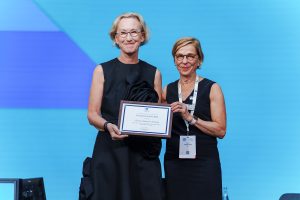
Dr. Loewenstein returned to the stage to introduce Dr. Ursula Schmidt-Erfurth for the EURETINA keynote lecture. Dr. Schmidt-Erfurth, is Professor of Ophthalmology at the Medical University of Vienna, Austria, and a pioneer and leading expert on artificial intelligence (AI). The title of her lecture was “Artificial Intelligence and AMD – How new tools change understanding, diagnosis, and management of disease”.
Dr. Schmidt-Erfurth’s lecture highlighted breakthroughs in AI for the management of AMD and presented how AI is being leveraged in currently available tools designed for use in clinical trials and clinical practice, both for patient management and community screening.
Summarising the main points of her talk, Dr. Schmidt-Erfurth said, “AI is here to stay for practical management of AMD, guided treatment in geographic atrophy, and understanding the combined wet/dry complexity. We have to move from structure to function, and we have to do screening.”
Presentation of awards
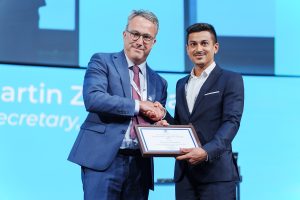 The Opening Ceremony ended with a series of award presentations. Dr. Martin Zinkernagel announced that Dr Prithvi Ramtohul (France) is the recipient of the 2025 Professor Ramin Tadayoni Award 2025 for his work “Long-lasting plasticity of intrinsic neuronal excitability in retinal ganglion cells”.
The Opening Ceremony ended with a series of award presentations. Dr. Martin Zinkernagel announced that Dr Prithvi Ramtohul (France) is the recipient of the 2025 Professor Ramin Tadayoni Award 2025 for his work “Long-lasting plasticity of intrinsic neuronal excitability in retinal ganglion cells”.
Dr. Reinier Schlingemann announced the recipients of the Euretina Retinal Medicine Clinical Research awards. They are Dr. Josef Huemer (United Kingdom), whose project is “Deep phenotyping of Optical Coherence Tomography biomarkers of cardiovascular disease using deep learning and genome wide analysis” and Dr. Kanmin Xue (United Kingdom) whose research is focusing on assessing the physiological risk factors for retinopathy of prematurity (ROP) progression and effects of antiVEGF therapy on neurodevelopment.
The 2025 August Deutman Awards were announced by Dr. Alistair Laidlaw. Full details of winners can be found HERE.
In the free paper awards, Roy Schwartz (United Kingdom) received the first place award for his presentation “Can visual acuity be estimated from multimodal imaging of geographic atrophy in age-related macular degeneration”. The first place award for ePoster& Poster Session presenter was given to Saoud Al-Khuzaei (UK) for “1st Genotype-Phenotype correlation in IMPG2 Retinopathy”. In the video award category, Elizabeth Yang (Italy) received the first place award for “Scleral sutured IOL and artificial iris and penetrating keratoplasty, a triple-procedure”.
FEBOS-Retina exam
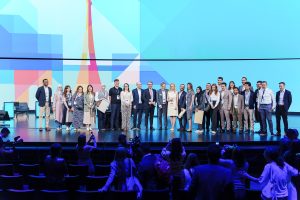
Reporting results of the 2025 FEBOS-Retina exam, which is the third year of the exam, Dr. Nicole Eter, announced that 38 candidates passed and have joined the group of FEBOS-Retina fellows. She recognised Carl Joe Mehanna (France) for achieving the highest exam score (86%) this year.
Thereafter, Dr. Marcin Stopa, presented Honorary FEBOS-Retina Diplomas to Dr. Eter and Dr. Jens Folke Kiilgaard.
Dr. Stopa said, “The FEBOS-Retina exam was created with the simple goal to establish a clear and credible benchmark for retinal specialists in Europe. Today we honour two colleagues without whom this diploma would not stand where it stands.”
Ending the opening ceremony, Dr Eter thanked those in attendance and invited everyone to enjoy a reception being held in the Congress centre.

